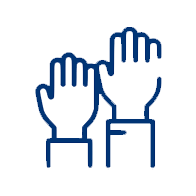Here are some practical strategies for managing stress when feeling overwhelmed and finding it difficult to cope:
- Identify the cause of your stress and review your current coping strategies
- Talk to a someone you trust (e.g. friend, family member, religious or community leader, or GP)
- Remind yourself of your skills and strengths, achievements and effort made during this difficult time
- Make a positive plan on how to address the situation
- Eat nutritious foods, get enough sleep, and avoid alcohol and other drugs
- Exercise – helps release built up tension in your body and releases ‘happy’ hormones which increase feelings of wellbeing
- Find time for activities you enjoy
- Access local supports services (GP, counselling services).











